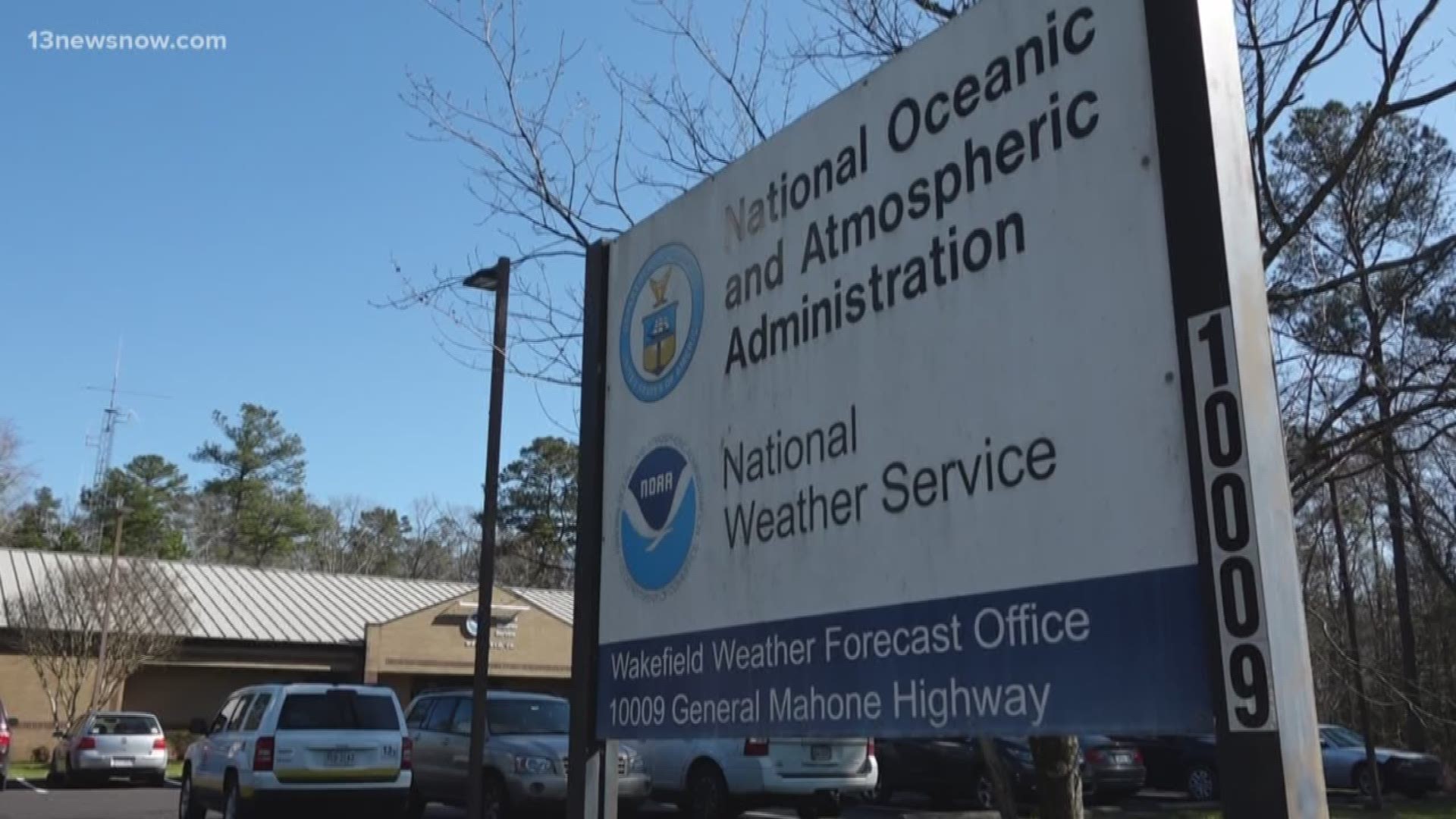WAKEFIELD, Va. — The weather affects how you dress, when you leave for work, and sometimes, even your bills.
But when the threat level increases, the National Weather Service has a task that no other agency does -- "We have warning responsibility."
That's what Eric Seymour says.
Seymour is the Warning Coordination Meteorologist at the National Weather Service in Wakefield, Virginia. The forecast office covers Hampton Roads but also a larger area as well.
"In our office, we cover a really wide range of east-central Virginia and also parts of Maryland and North Carolina," Seymour said.
Their on-site radar is constantly sweeping to check on current conditions around the area.
The radar works in what we call a volume coverage pattern. It has a receiver in the dome that's spinning around," Seymour explained.
The radar sends out energy to pick up on what might be moving through the area -- rain, snow, hail. It also helps to determine how fast showers or storms are moving. They also have control of the radar in Dover, Delaware, which helps with conditions on the Delmarva and Northern Neck.
"I think one of the things that's unique about our office, where we're located, is that we're able to get to parts of our area fairly quickly," Seymour noted.
The location of the office being relative to the coverage area is important because they also have the task of surveying damage after the storm.
"When it comes to determining straight-line wind versus tornado damage after the storms – it's all about the appearance of damage," Seymour explained.
"If it's straight-line winds, most of your damage is all going to be moving in one direction."
"If we're looking at things in a pattern, if we're seeing curvature in how things have fallen, those things really start to give us indicators as far as the fact that maybe we're looking at a tornado," Seymour said.
The National Weather Service, like the 13News Now meteorologists, looks to you -- the viewers and our neighbors -- for reports and ground confirmation of different weather events.
RELATED: SCIENCE BEHIND: Meteor Showers

